Decades back, Hideyuki Kikuchi gave us one of the most iconic vampire mangas of all time. From its gothic inspirations to its occult references, the series is a total banger.
From visuals to animation, Madhouse Studio left no stone unturned in exemplifying its brilliance. But like most mangaka, Kikuchi had his fair share of inspirations.
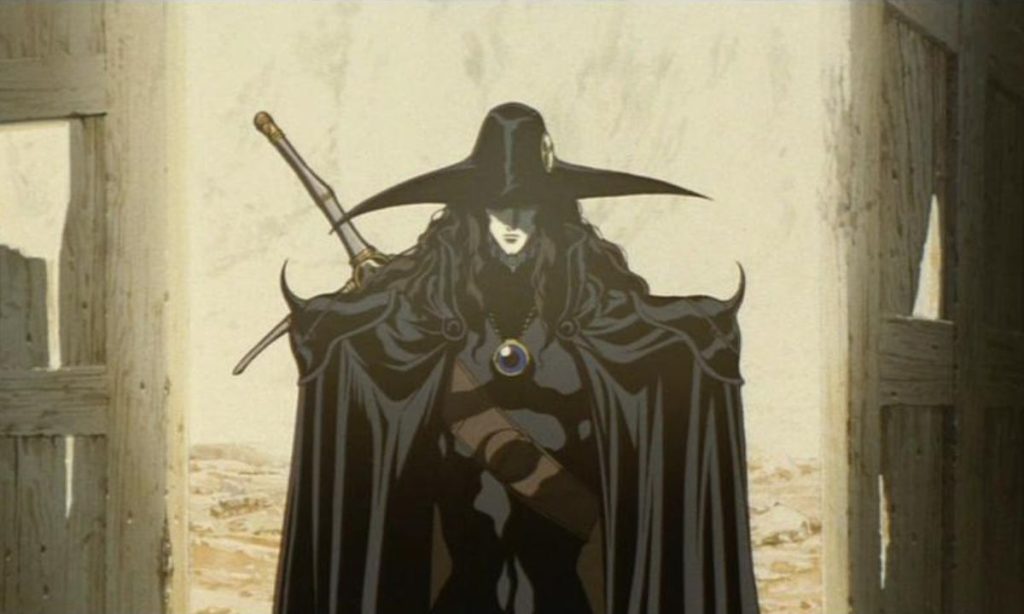 D in a still from the animated film | Credit: Madhouse
D in a still from the animated film | Credit: Madhouse Regarding his story, he cited Lord of the Rings as one of his influences in an interview. The fantasy, occult, and dark aspects are blended well in the masterpiece.
But most of all, Kikuchi’s exploration of immortality and morality outlined the stigma and the societal norms. The vampires aren’t divorced from this hierarchy either, thus partaking in the discrepancies.
Hideyuki Kikuchi’s connection to The Lord of The Rings
Hideyuki Kikuchi is one of the most underappreciated names in the horror manga genre. With a career spanning over four decades, Kikuchi gave us some of the iconic works through his literary brilliance.
Some of his notable projects include Demon City Shinjuku, Darkside Blues, and Taimashin. His stories are massive hits among viewers and readers apart from being total bestsellers. But that is not all considering his vampire manga which stands iconic to this date.
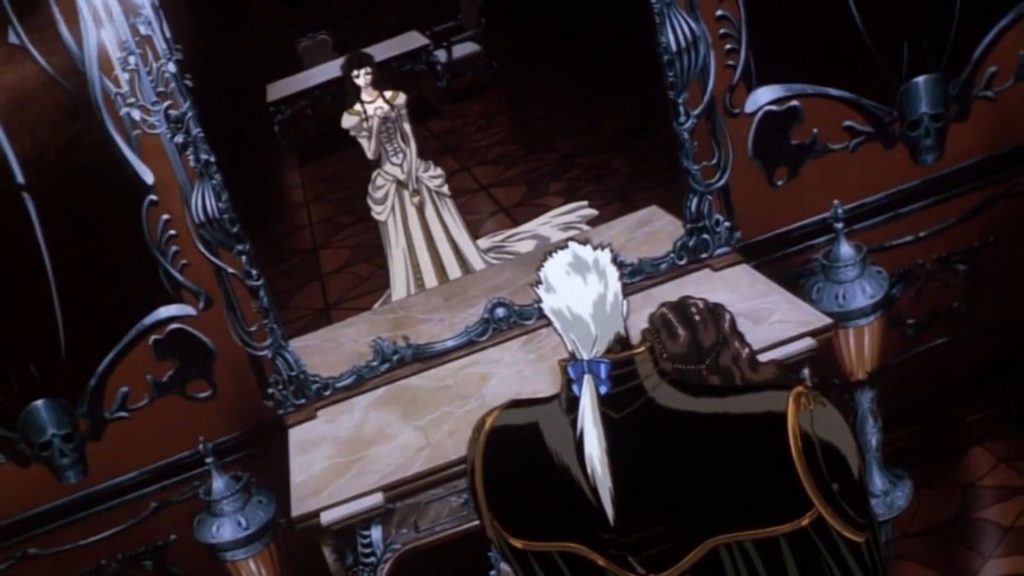 Meier and Charlotte in a still from the film | Credit: Madhouse
Meier and Charlotte in a still from the film | Credit: Madhouse While Castlevania stands out as a vampire story, Kikuchi’s story is a masterpiece that is often slept on. This is true in its exploration of society and relationships that are blended well with the occult elements.
The visuals and storyline are reminiscent of an old-world aesthetic fused with Lovecraftian horror. But there’s a detail that most viewers may have overlooked especially with Kikuchi’s inspiration from the Lord of the Rings.
In an interview, the mangaka revealed J.R.R Tolkien’s masterpiece as an inspiration for his series. He quoted:
Tons of movies have influenced me…of course, D being heavily influenced by Shane. But in another one of the stories, part of it was based on the battle scenes from Lord of the Rings.
Above all, though, the series carved a benchmark in terms of storytelling and its take on the genre as a whole. It isn’t often that one comes across a well-written Gothic manga.
And while it is a rarity, Kikuchi’s series lives up to its status through its exploration of immortality and morality. Its take on the social system fused with fantastical elements is what sets it apart in most aspects.
Immortality and Morality are enmeshed in Vampire Hunter D.
Love and romance take a backseat in the Vampire Hunter D series. This is mainly because of the ever-present moral conflicts and hierarchy. The nobles exist merely to rain on one’s parade through their divisive ecosystem and measures.
One of the cliche tropes in vampire stories highlights a strenuous relationship between humans and vampires. A central theme of Kikuchi’s series is the immortality and its disputed nature. D is the perfect example of this because of his existence as a dhampir.
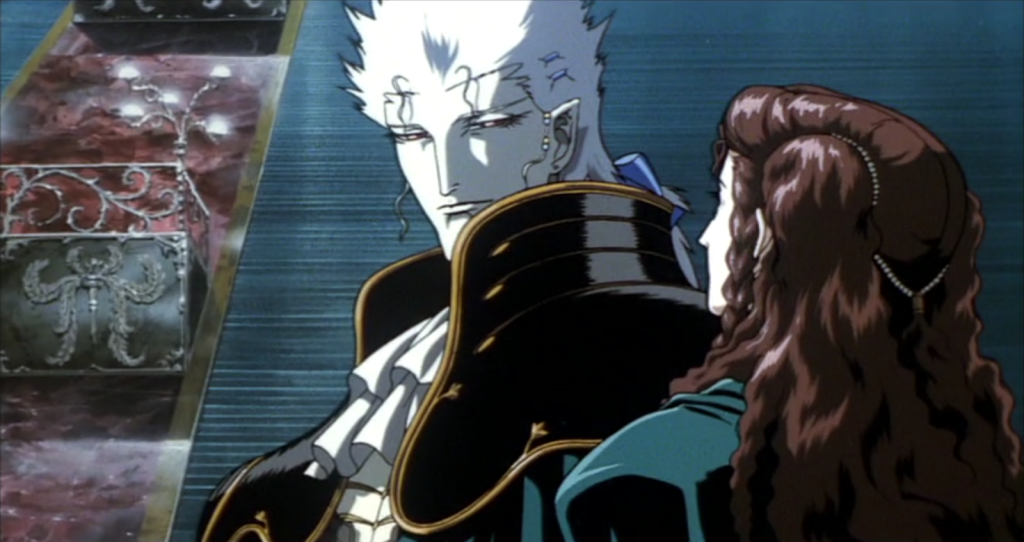 Meier Link and Charlotte Elbourne in a still from the film | Credit: Madhouse
Meier Link and Charlotte Elbourne in a still from the film | Credit: Madhouse His mere existence outlines a larger conflict in terms of his race. Being both human and a vampire, as a hybrid, he belongs nowhere. Throughout the series, he is entangled in conflicts. This mostly has to do with his existence as a half-mortal, half-immortal hybrid. Regarding the immortality aspect, Kikuchi said:
I thought that when put in that situation, the ageless and immortal superhumans might seem even unhappier than ordinary human beings. I think that’s probably the greatest draw for vampire stories.
Most of all, D and his selflessness are weaponized by the nobles. And while he is a powerful and daunting hunter, he is symbolic of a bridge between the two worlds.
By and by, Vampire Hunter D is a wholesome gothic series that encapsulates horror, fantasy, and occult brilliantly through its riveting storyline and stellar visuals.
Vampire Hunter D: Bloodlust is available for streaming on Amazon Prime Video.
.png)
 1 week ago
12
1 week ago
12

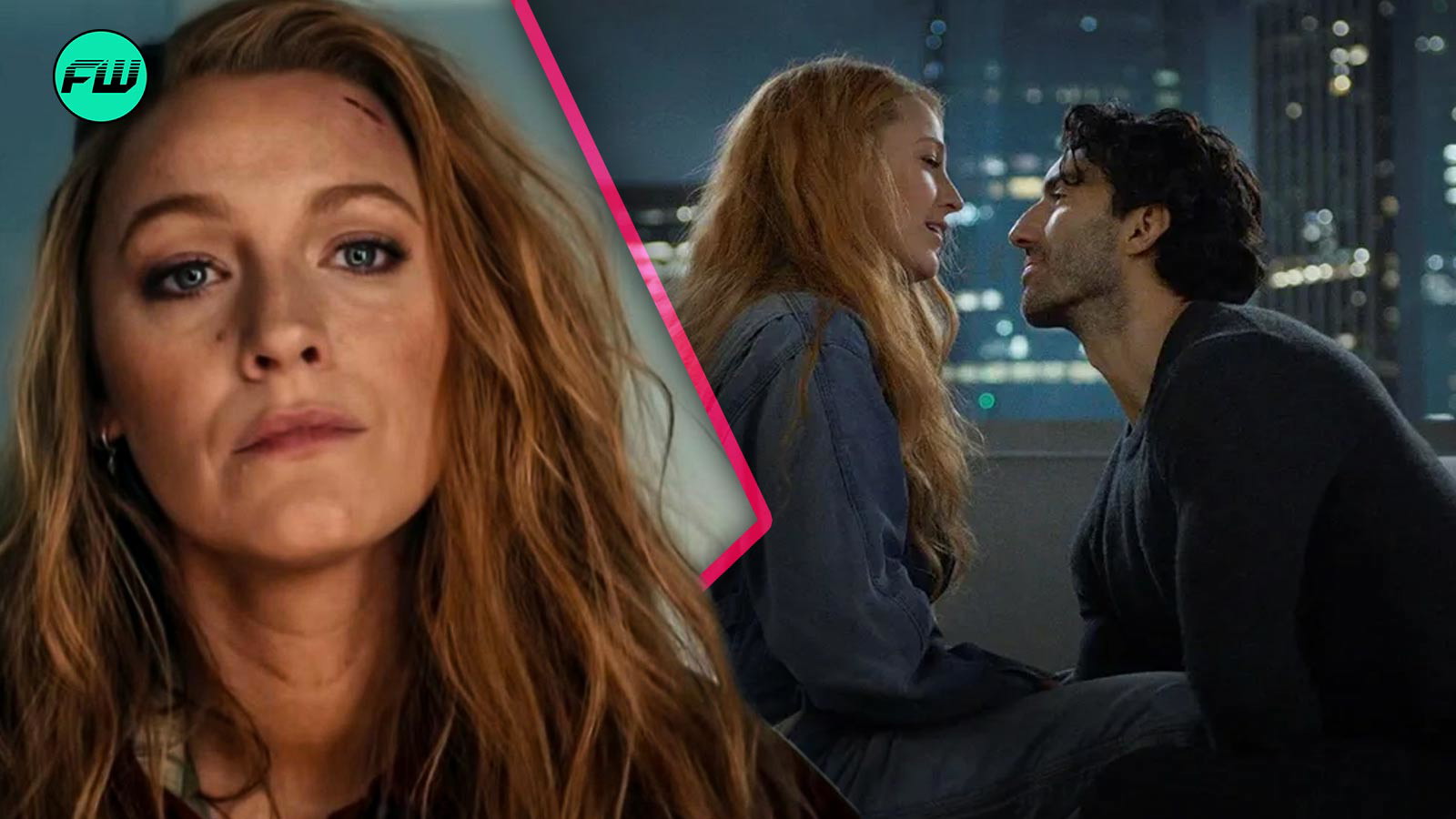
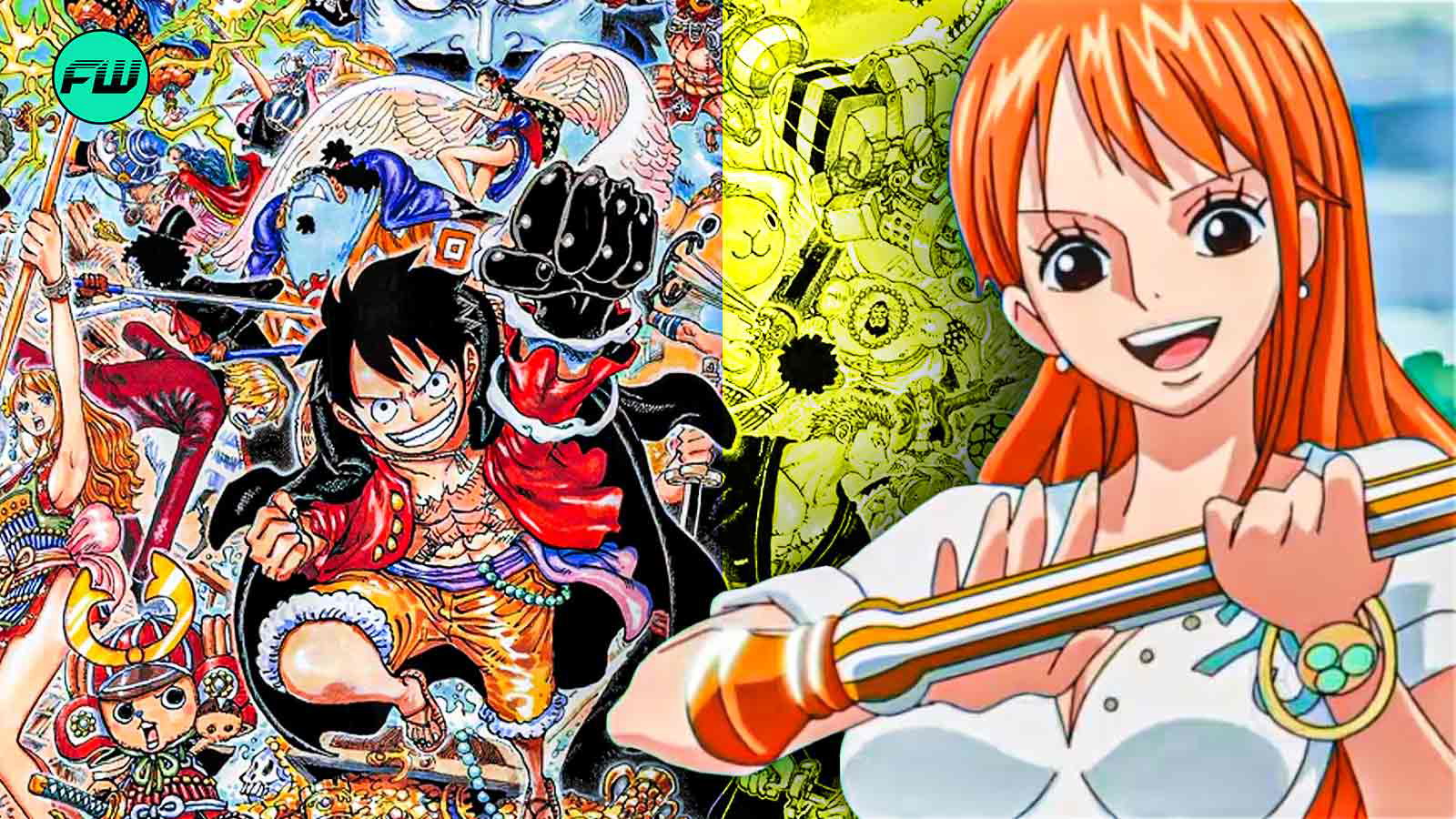
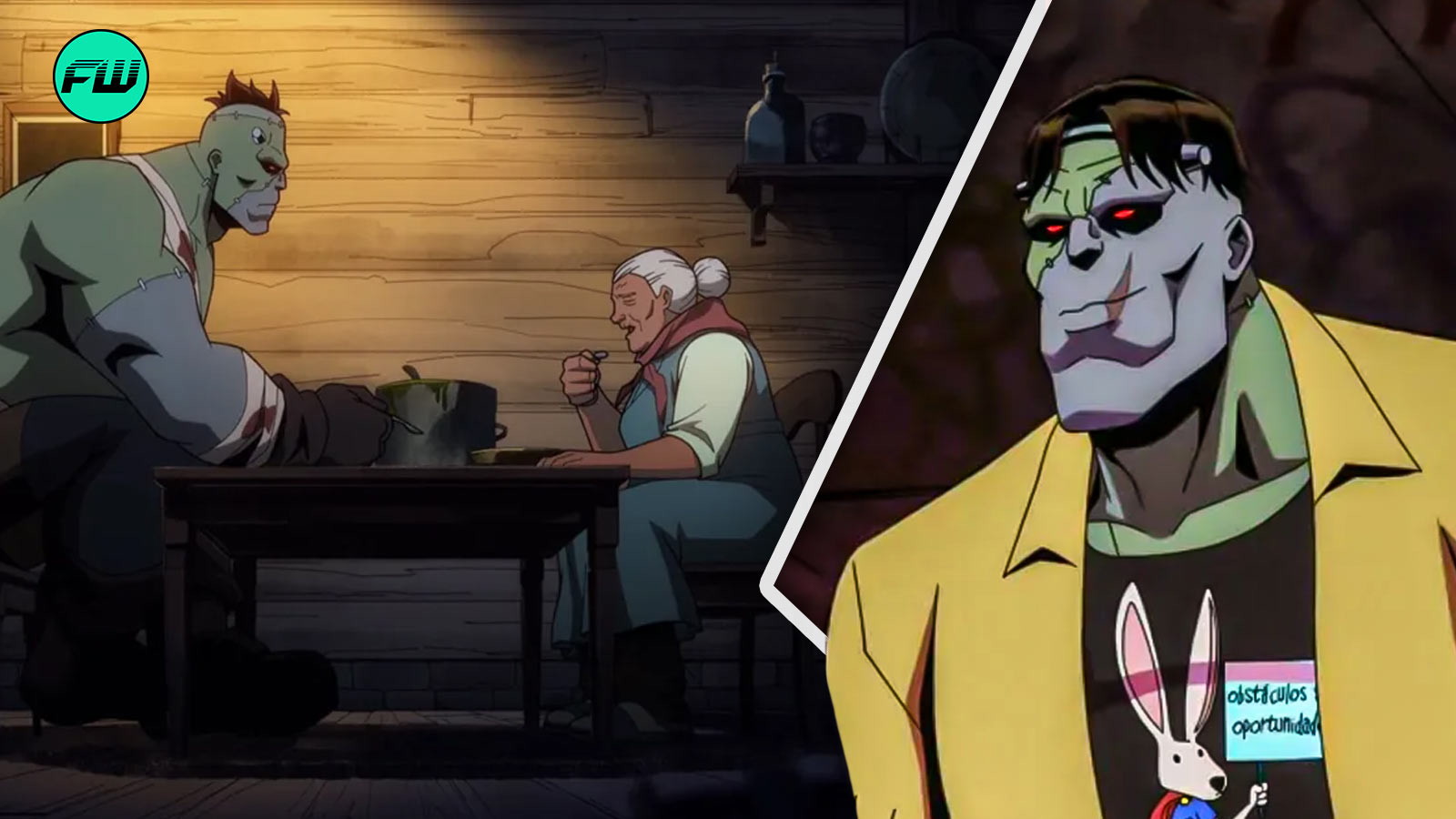

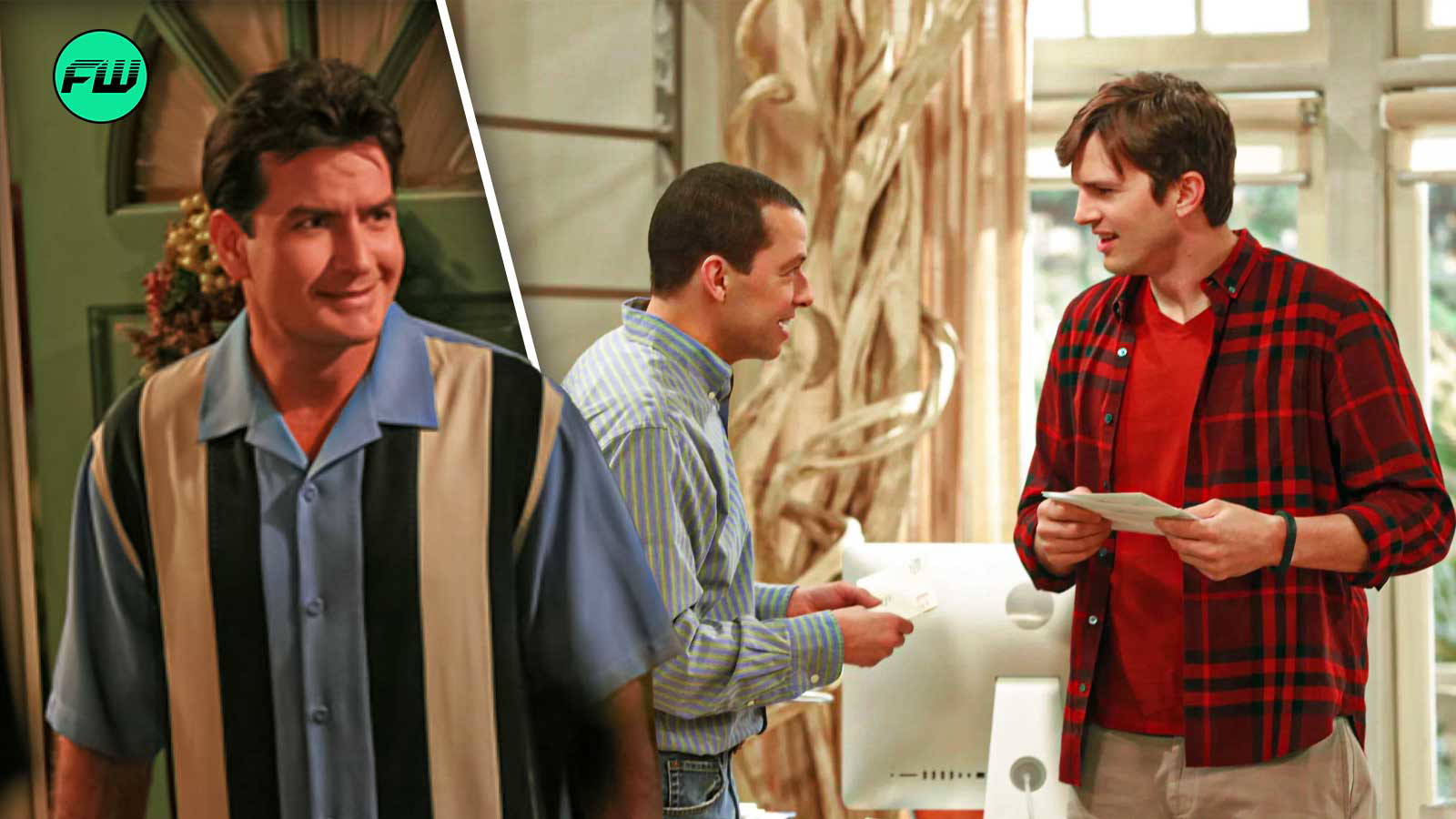



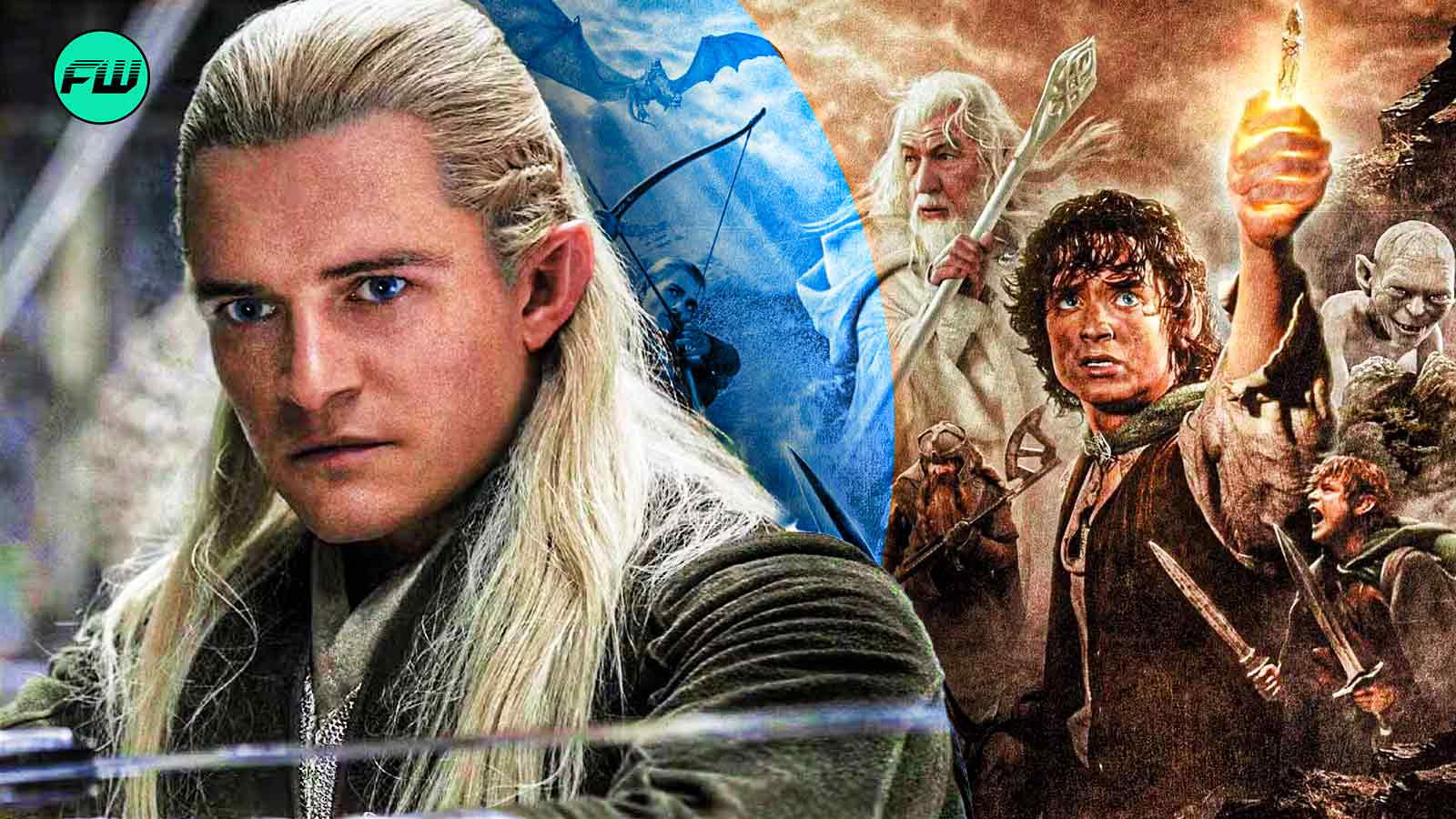
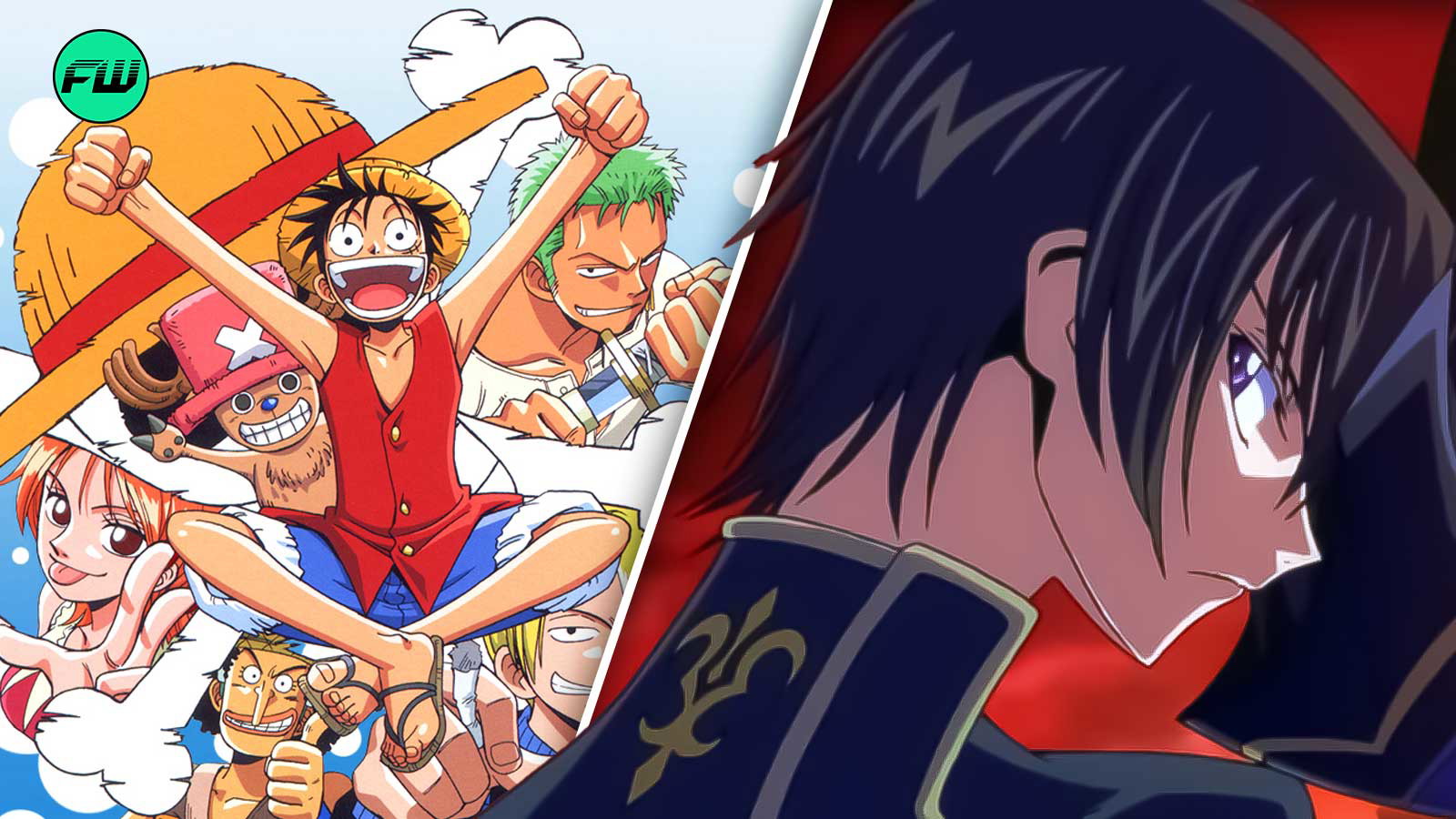
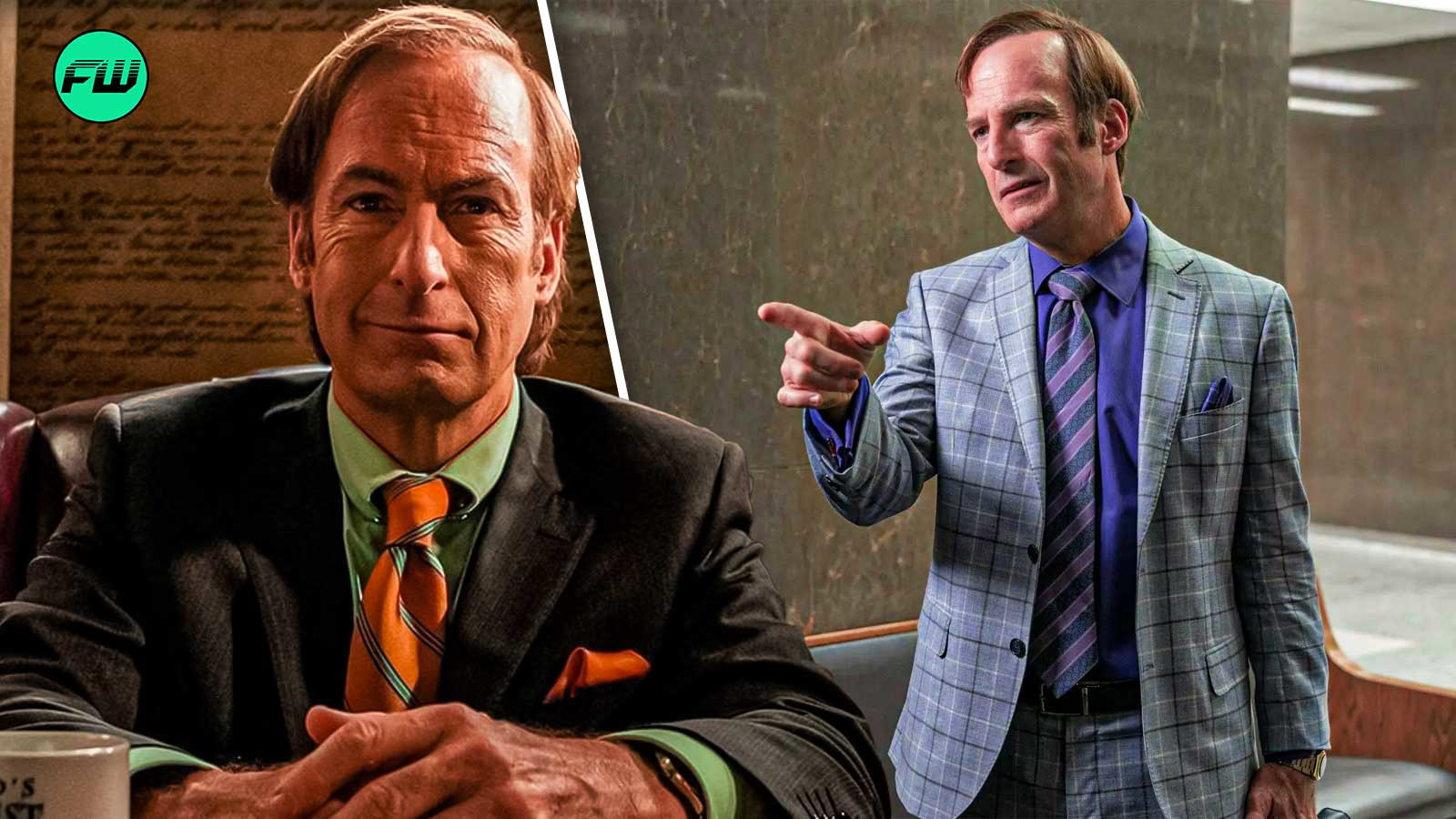






















 Bengali (BD) ·
Bengali (BD) ·  English (US) ·
English (US) ·